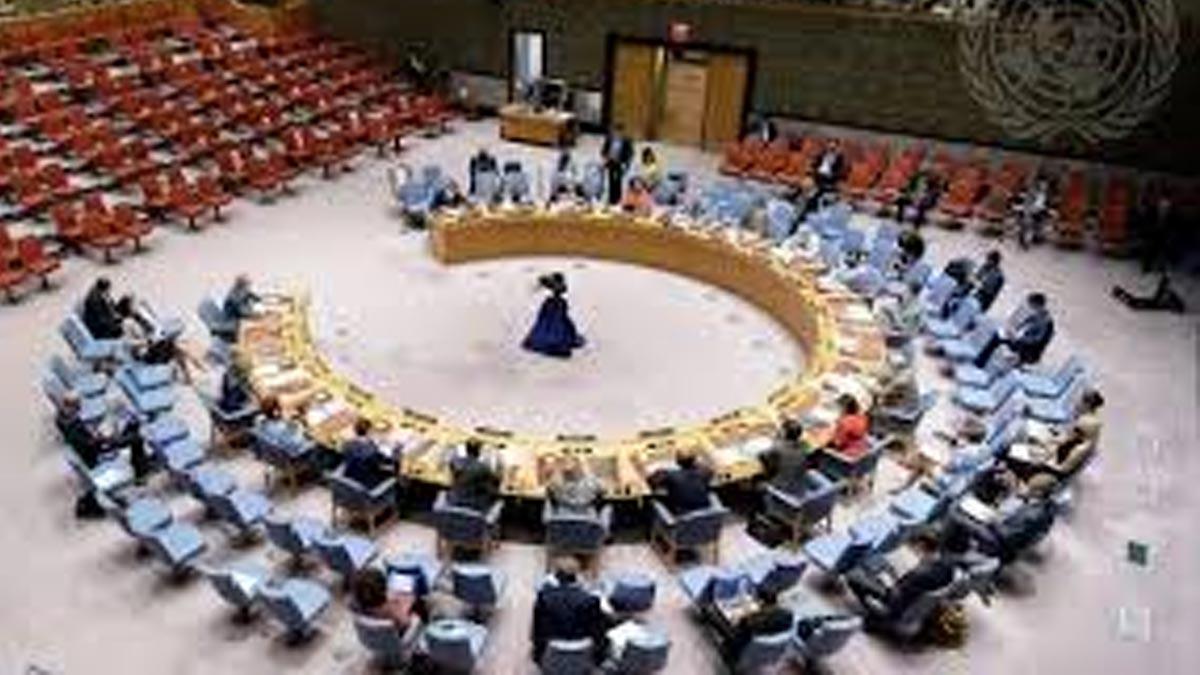The United Nations Security Council (UNSC) severely condemned Pakistan in a behind-closed-doors consultation on tensions with India and the Pahalgam terror attack, which was deadly.
The UNSC members made Islamabad responsible for the role of the Pakistan-based terrorist organization Lashkar-e-Taiba in the April 2025 attack, which left 25 tourists and a pony ride operator from Kashmir dead in Pahalgam, Kashmir.
In the course of the deliberations, Pakistan's attempts to globalize the crisis were turned down by UNSC members. They indicated that the nuclear posturing by Pakistan added to the increasing tensions and took note of the recent missile tests by the country. The UNSC members also called on Pakistan to resolve its differences with India through bilateral dialogue instead of turning to outside intervention.
Pakistan, which is one of the non-permanent members of the UNSC, had asked for a "closed consultation" during the heightened tensions with India. The permanent members of the UNSC, including China, France, Russia, the UK, and the US, were also there, along with non-permanent members like Algeria, Denmark, Greece, Guyana, Panama, South Korea, Sierra Leone, Slovenia, and Somalia.
The members of the Security Council condemned the act of terror and stressed the imperative of accountability, pointing out that the tourists in Pahalgam were targeted because of their religion. They rejected Pakistan's "false flag" theory for the attack and reaffirmed the imperative of finding a peaceful resolution to the dispute between the two nations.
After the meeting, Pakistan's UN Ambassador Asim Iftikhar denied the charges of Pakistan's role in the Pahalgam attack. He also condemned India's suspension of the Indus Waters Treaty as a breach of international law. There has been no official comment from the Security Council or India on the talks so far.
Tunisian envoy Khaled Mohamed Khiari remarked that the atmosphere was "volatile," emphasizing dialogue and a peaceful resolution to the conflict. Greek representative Evangelos Sekeris, the May President of the UNSC, called the session "productive and helpful" and hoped for de-escalation. A Russian envoy shared a similar sentiment, saying, "We hope for de-escalation."
UN Secretary-General António Guterres had urged maximum restraint from both countries before the UNSC consultation. He reiterated that a military solution is not the solution and expressed his concern at the worsening relations between India and Pakistan. Guterres also condemned the terror attack, recognizing the "raw feelings" involved but reiterating that civilians cannot be targeted and those responsible must be brought to justice through legal means.
The Pahalgam attack, which occurred on April 22, 2025, left the world in shock and was one of the deadliest attacks in the past decades. As a result, India suspended the Indus Waters Treaty and revoked visas for Pakistani citizens residing in India, citing terrorist connections with Pakistan as the primary justification for these actions.
Read also| Prince Harry to Press UK Minister on Security Rights After Court Defeat
Read also| Zelenskyy Declines to Assure Safety of Putin’s Foreign Guests at Red Square Parade


















